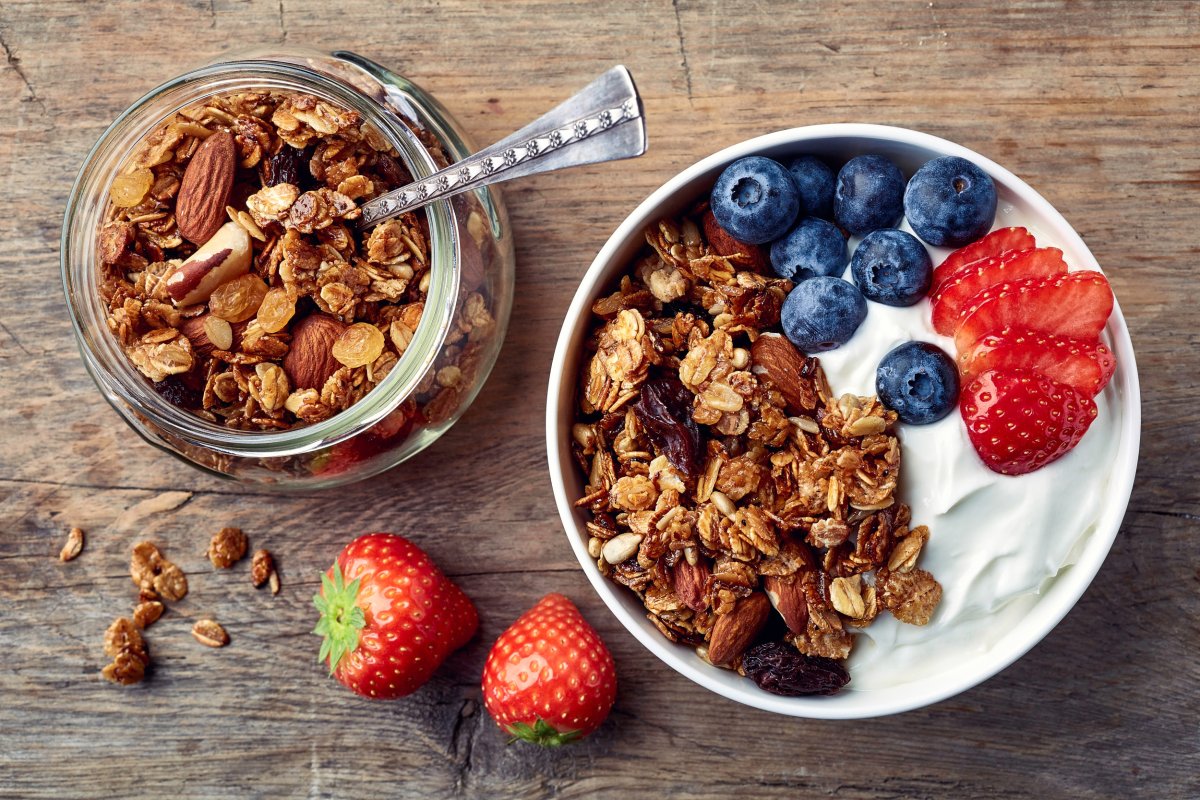The new year often symbolizes a fresh start, motivating many to embrace healthier habits. Each year, people resolve to make positive changes—cutting out unhealthy foods, limiting alcohol and exercising more.
However, some “healthy” foods may not be as beneficial as they appear. Newsweek spoke to three nutritionists to reveal one breakfast option that seems healthy but is best avoided.
Research shows that a nutritious breakfast should prioritize fiber, protein and essential nutrients such as vitamins A and B, calcium, iron and magnesium, while minimizing sugar and fat. Despite this, popular cereal-based options can raise glycemic load and index, leading to blood sugar spikes.
While sugary cereals are widely recognized as unhealthy, granola often masquerades as a better choice. After all, it’s just baked oats, nuts, seeds and a touch of sweetener, right?
monticelllo/iStock/Getty Images Plus
The Truth About Granola
Although breakfast is touted as the most important meal of the day—boosting productivity, cognitive function, memory, children’s academic performance and women’s health—many granola brands contain excessive sugar and lack certain nutrients.
“Granola often contains minimal fiber and is loaded with sweetened fruits or jams,” Dr. Erin Barrett, a nutritional biochemist in Boulder, Colorado, told Newsweek.
The American Heart Association (AHA) recommends limiting added sugar intake to 9 teaspoons (36 grams) per day for men and 6 teaspoons (25 grams) for women. However, a single cup (30g) of some granolas contain over 10 grams of sugar, according to the USDA.
Also, adults should consume 30 grams of fiber daily but most granolas provide less than 2 grams per serving.
Yet a March 2024 Consumer Reports survey of 2,000 people found that 20 percent of respondents believe granola is “always” healthy.

baibaz/iStock/Getty Images Plus
Yogurt: A Mixed Bag
Granola is often paired with yogurt, further complicating its health profile. “The right yogurt can make all the difference,” said Barrett. “While yogurt and granola can be healthy, parfaits often include sugary, flavored yogurts.”
Jordan Anthony, a Florida-based nutritionist, agreed. “Plain yogurt, especially varieties with probiotics, is an excellent source of protein, calcium and essential nutrients. It’s low in carbohydrates and provides sustained energy, especially when paired with fiber-rich foods,” she said.
Anthony, who works at the nutrition company Ahara, added that flavored yogurts, smoothies and parfaits often contain added sugars, artificial flavors and little to no probiotics. These options typically combine low-fat yogurt with high-carb ingredients, negating their potential health benefits.
Identifying Added Sugars in Yogurt
The American Institute for Cancer Research (AICR) notes that nutrition labels don’t differentiate between natural sugars (from milk or fruit) and added sugars. However, comparing flavored yogurt with plain yogurt of the same serving size can help estimate added sugar content.
For example, a 6-ounce serving of fruit-flavored yogurt contains 23–29 grams of sugar, while plain yogurt has about 13 grams, derived naturally from milk, according to the AICR. This suggests flavored yogurt includes 10–16 grams from the fruit and added sugar—equivalent to 2.5–4 teaspoons.
To cut back, choose plain yogurt and add fresh fruit for flavor and enhanced nutrition.
A Healthier Alternative
If granola is your go-to breakfast and you’re now reconsidering your choice, registered dietitian Kimberly Gomer has suggestions for a balanced meal.
“Breakfast should include protein and vegetables, if desired,” she told Newsweek. “An omelet loaded with veggies, a side of chicken sausage and a serving of fruit is an ideal meal. For a lighter option, opt for Greek yogurt with no added sugar, topped with berries.”
By focusing on balanced, nutrient-dense foods, you can set the tone for a healthy, energized day.
Is there a health issue that’s worrying you? Let us know via health@newsweek.com. We can ask experts for advice, and your story could be featured on Newsweek.


